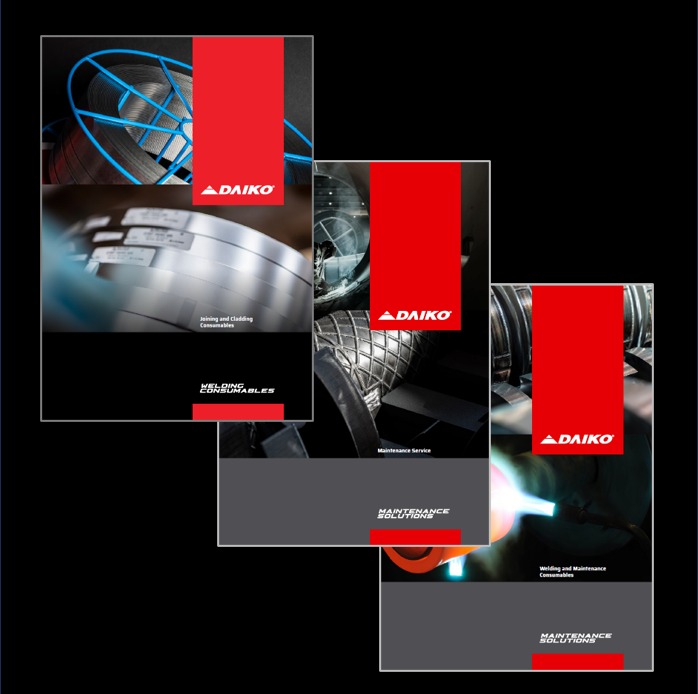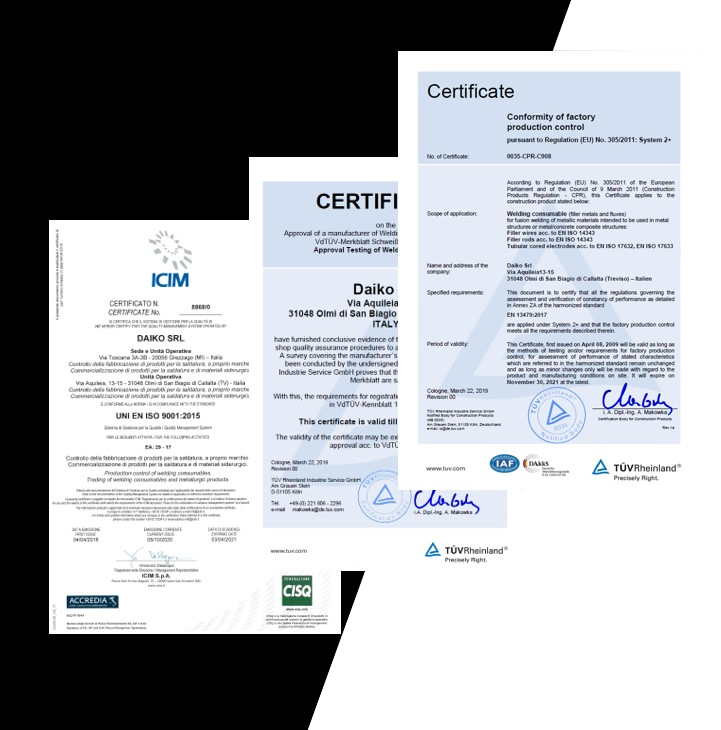- Home
- >
- All DAIKO products
- >
- COBALT ALLOYS
- >
- Gr. 25
Gr. 25
Application
This filler, derived from the L605 rolled alloy, excels in resisting thermal fatigue. It is used to rebuild tools for hot steel operations like scissors and punches in the steel industry. The non-magnetic weld metal showcases robust mechanical strength and effective oxidation resistance up to 980°C. It resists sulphuration and wear in metal-to-metal bonds, providing reliable "metal-to-metal" resilience against corrosion, abrasion, cavitation, and high impacts, especially at elevated temperatures. It endures in oxidizing and reducing atmospheres, up to 1150°C. Widely applied in molding and die applications for hot forming, it finds versatile use in the petrochemical industry, high-pressure steam control valves, various valves, shear blades, turbine blade recharging, extrusion dies, forging dies and tools, furnace components, and tools designed for working hot steel.
Alloy Type
Cobalt-based alloy with additions of chromium, tungsten and nickel for excellent high temperature strength and oxidation resistance
Microstructure
Chromium and tungsten carbides in an austenitic type matrix.
Materials
It is used for rebuilding and/or hardfacing of tools that work hot steel, such as scissors, punches, etc. for the steel industry.
Welding & PWHT
Prior to welding, ensure a thorough cleaning of the joint surface and surrounding area to remove contaminants like grease, oil, crayon marks, sulfur compounds, and foreign matter. Avoid any contact between the joint area and copper or copper-bearing materials. While it's preferable for the alloy to be in a solution-annealed condition during welding, preheating is generally unnecessary as long as the base metal temperature stays above 0°C. Maintain low interpass temperatures during welding. For multiple weld passes, use auxiliary cooling methods if needed, ensuring they don't introduce contaminants. Post-weld heat treatment is usually unnecessary under normal conditions.
Products of the line Gr. 25
| Product name | Process | AWS specifications | EN ISO specifications | |
| DAIKOWT 1025 | GTAW | - |
EN ISO 14700
S Z Co (L 605) |
|
| G-TECH 1025 | SMAW | - |
EN ISO 14700
E Z Co1 (L 605) |
|
| DAIKOFCW 1025 | FCAW | - |
EN ISO 14700
T Co1 |
|
| DAIKOWM 1025 | GMAW | - |
EN ISO 14700
T Z Co (L 605) |


